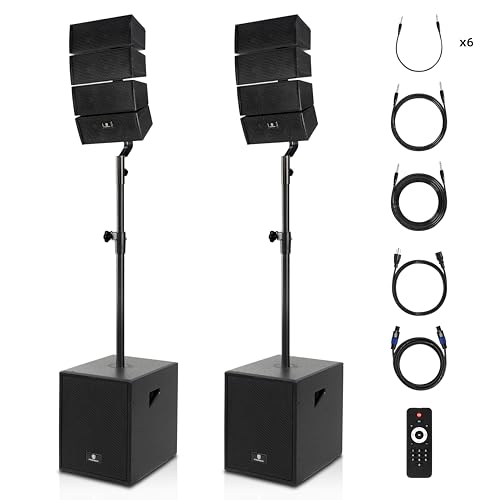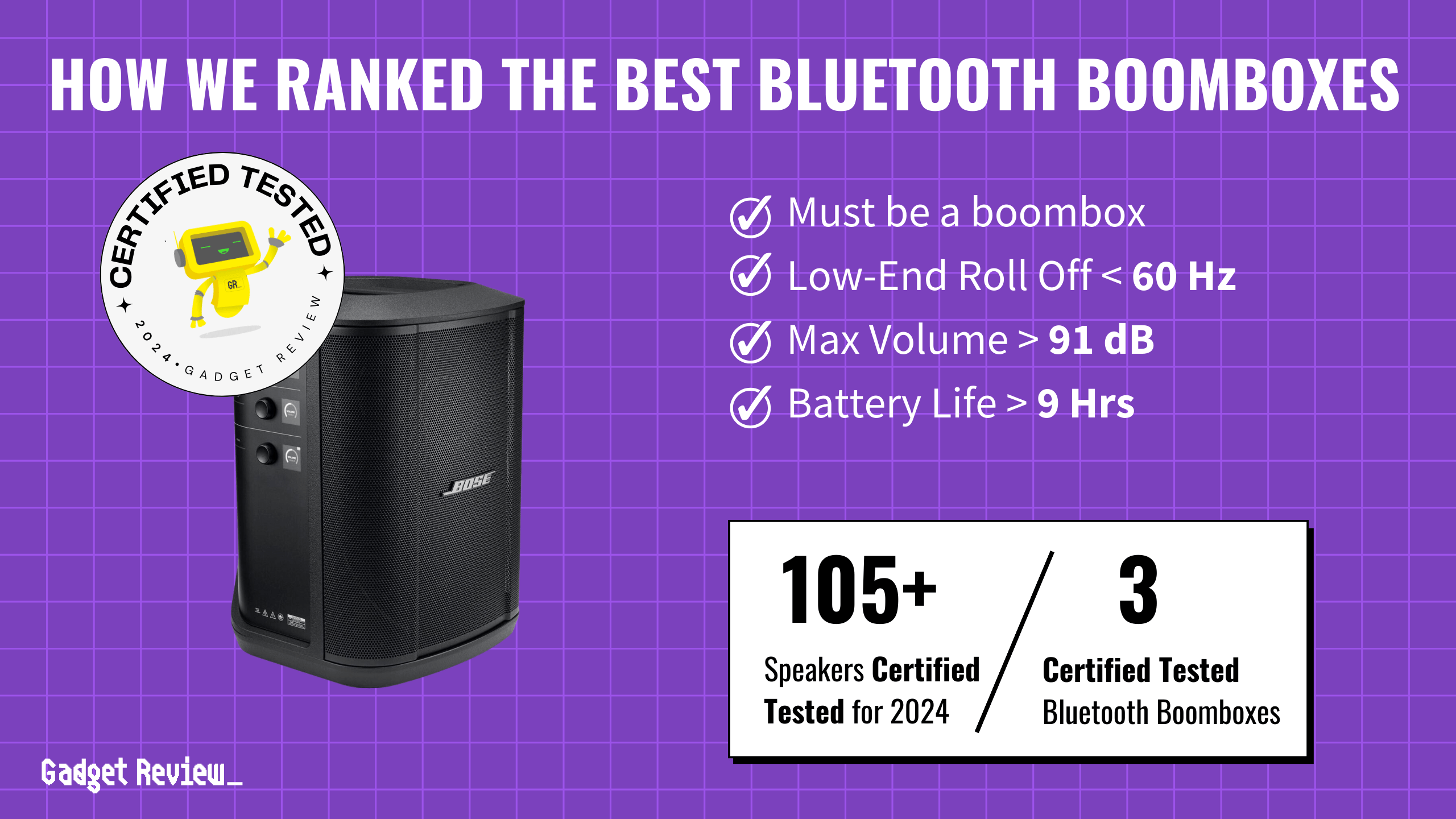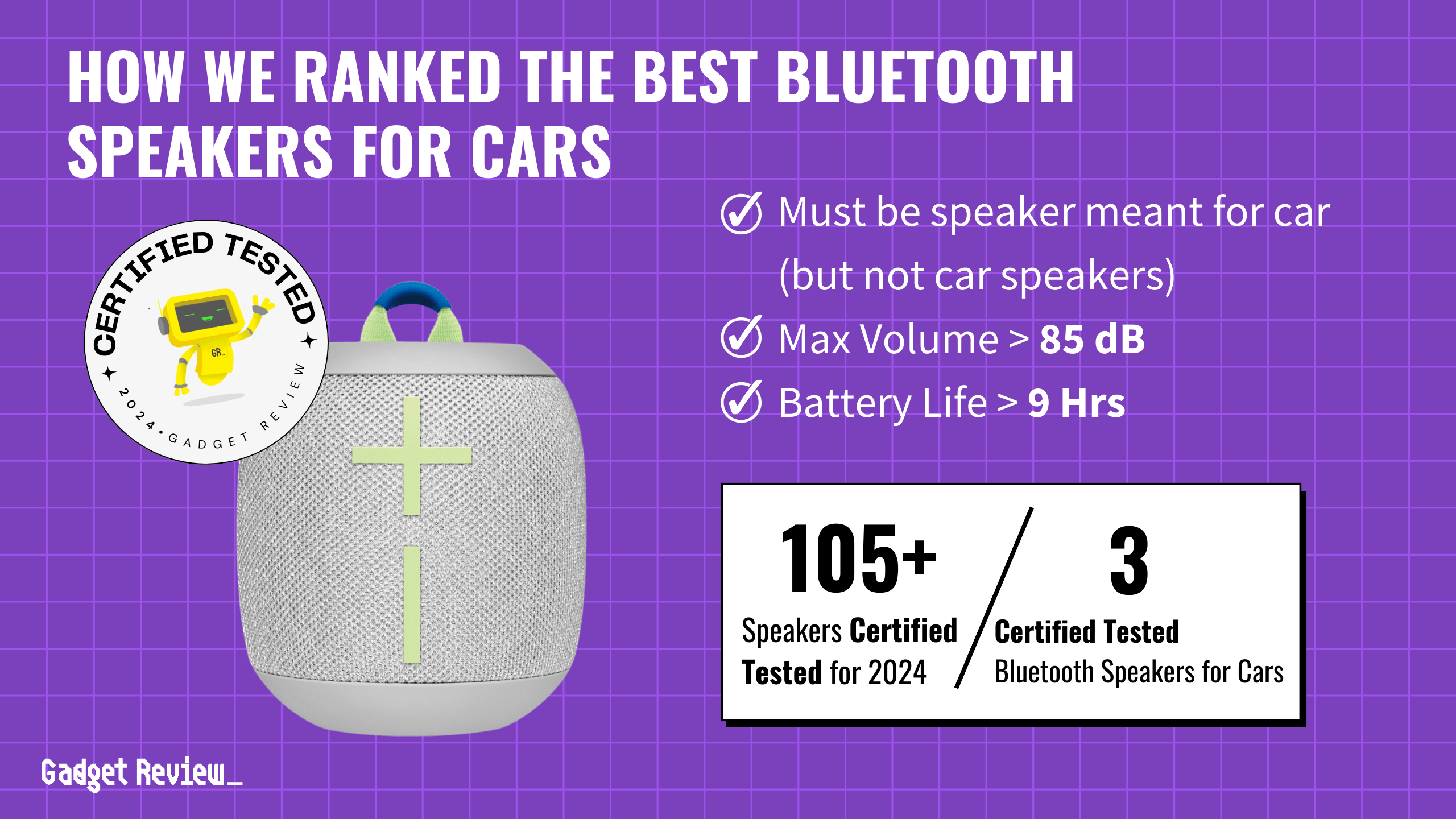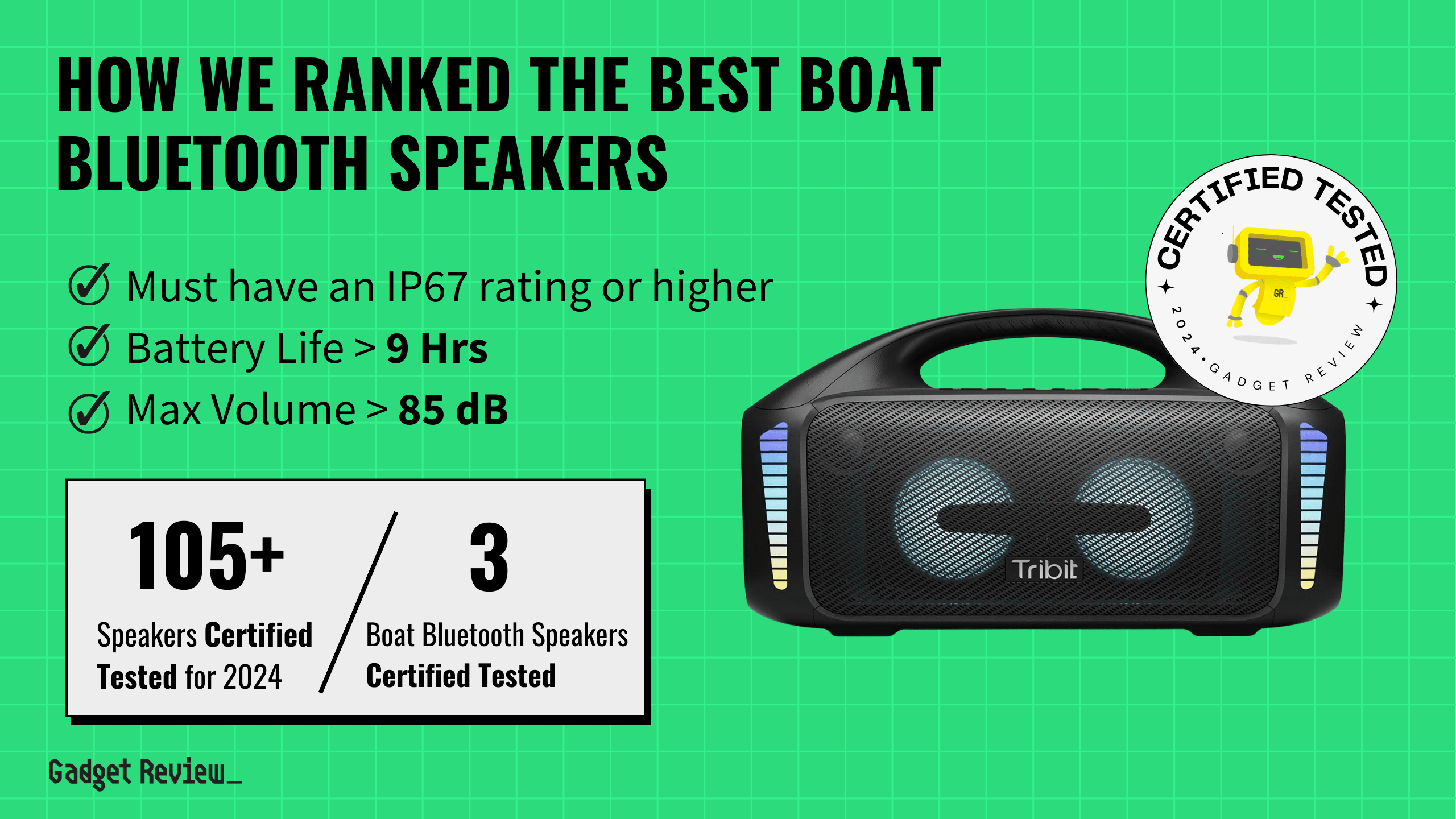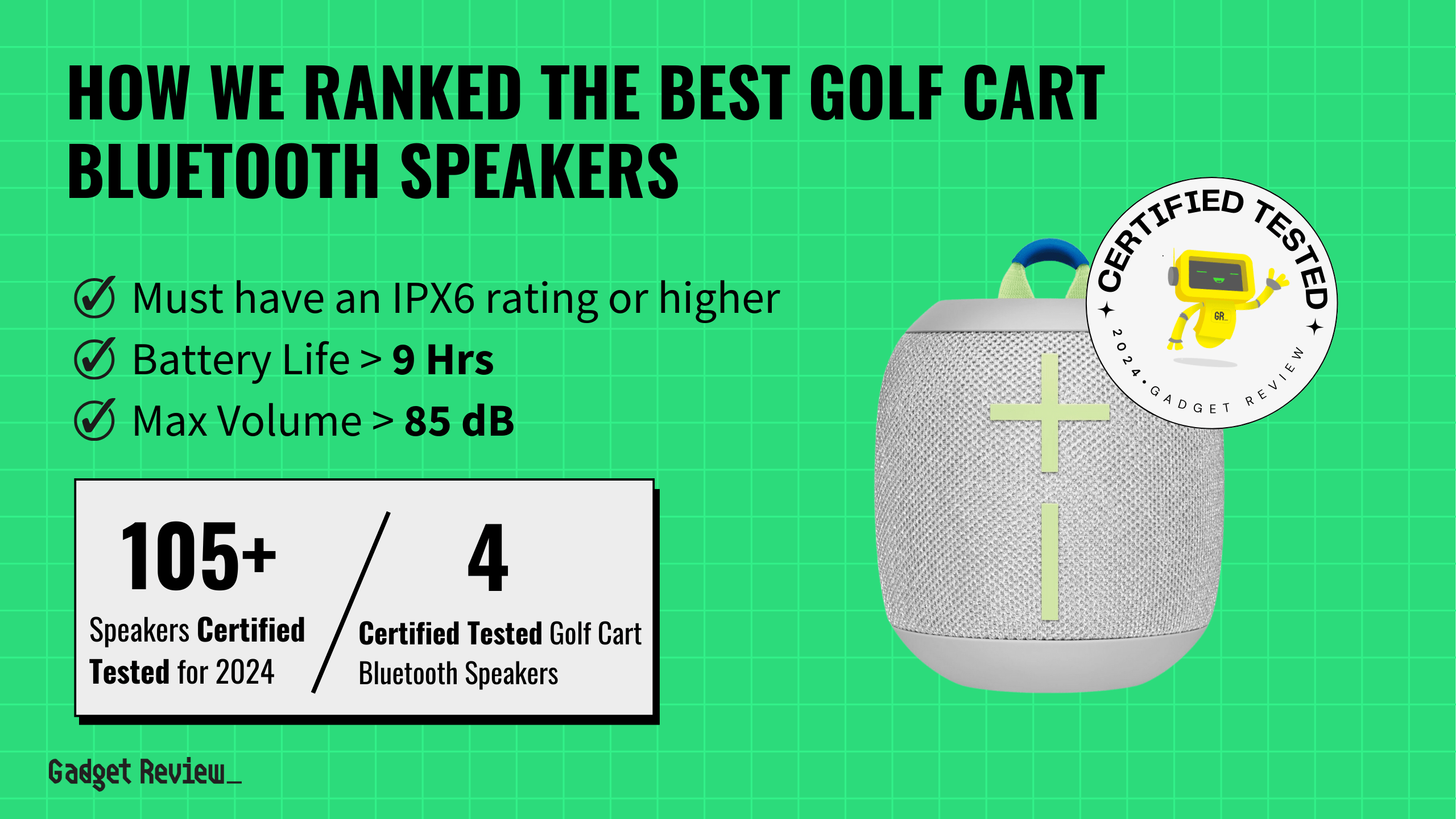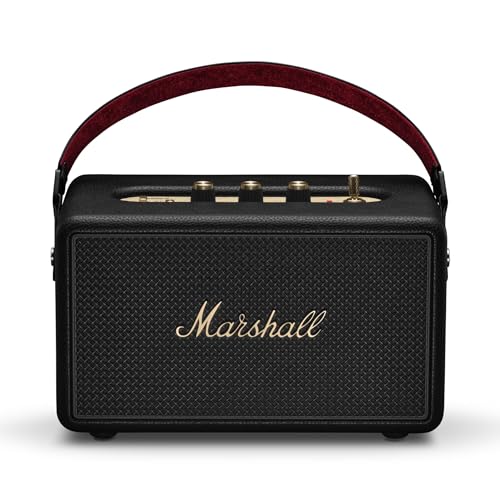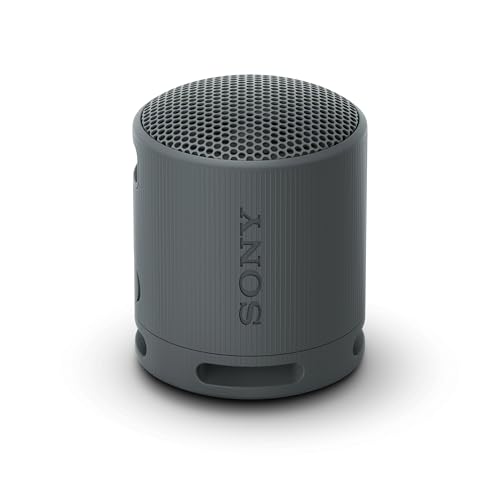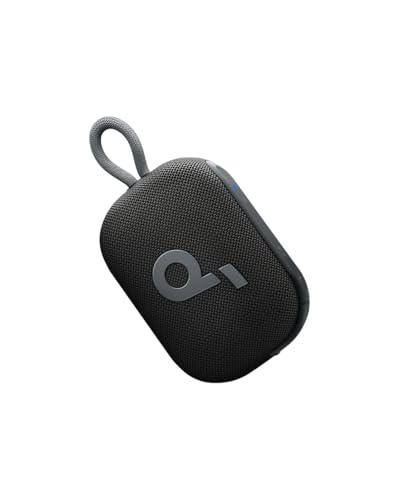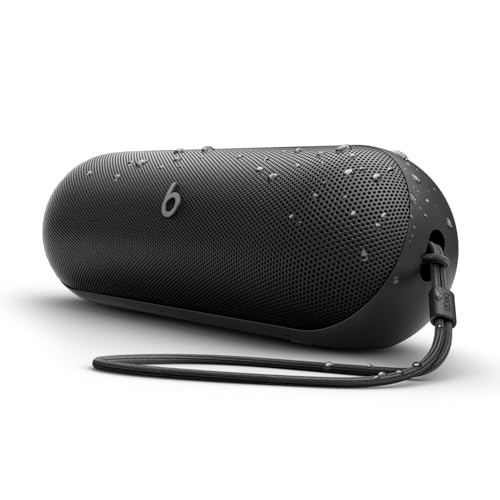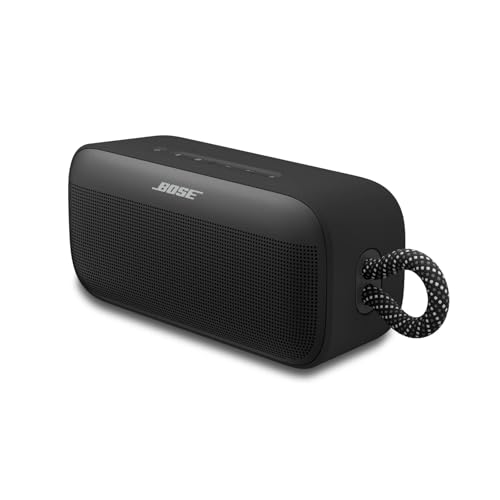The best DJ speakers will hands down supercharge your performance and make sure the crowd hears your music without any distortions. Among the best speakers on the market, these speakers are fit for use at high volume.
Durable, portable, and active powered, DJ speakers come in various ergonomic designs to make it easy to set up and dismantle your rig swiftly. They have high power ratings that ensure they can be used at loud volumes for long durations while retaining excellent audio quality.
Curious as to what sets these speakers apart from other ones? This article looks at what DJ speakers are, how they differ from other speakers, how long they last, why they’re suitable for you, and much more. Continue reading this buying guide to learn everything you need to select the best DJ speakers for home and performance use.
Top DJ Speakers
#1 Proreck Club 3000 12-inch 4000W Speakers
Award: TOP PICK
WHY WE LIKE IT: It offers a wide range of connectivity options and has twin subwoofers for deep bass production. There’s also a remote for added convenience and an onboard EQ for sound quality adjustment.
- Wide range of connectivity options
- Deep bass production
- Support for Bluetooth connectivity
- Weight of 125 pounds may be difficult for some to handle
The Proreck Club 3000 is an all-in-one Bluetooth PA system that is perfect for home use as well as for small events of up to 200 people. The system consists of both an active and passive subwoofer and two 4 x 4-inch array speakers that add up to eight. The system’s support for Bluetooth connectivity means that owners will be able to seamlessly play music from their iPhone, iPod, iPad, and Android devices, and it gets loud enough to serve an area of up to 500 meters. The two subwoofers deliver impressive bass levels; however, its total weight of 125 pounds may make it difficult for some to handle. In that case, you may want to check out our roundup of the finest JBL speakers.
The set also comes with all the required cables for all connections, as well as a remote control that can be used for making volume changes or switching between songs from a distance of up to 20 feet. On the rear of the active subwoofer, owners will find a wide range of connectivity options that consist of four-channel inputs and one output so that owners will be able to connect up to five pieces of musical instruments. There’s also a USB and SD card slot for playing music from external sources and an LCD that serves as a status indicator. There is also a five-band graphic equalizer and individual volume controls.
#2 Pioneer DJ DM-40 21W Two Way Active Speakers
Award: HONORABLE MENTION
WHY WE LIKE IT: They deliver an intense and satisfying bass, with minimal distortion when turned up to the max. They are also quite sturdy and well constructed, and since they each weigh 10.9 pounds, they shouldn’t be challenging to handle.
- Deep and satisfying bass
- Minimal distortion at high volume
- Wide frequency range to deliver both low and high end sounds
- No tuning options available
Just as they make the leading car speakers for bass, Pioneer is a well-respected brand that is considered the first choice for DJs and event managers when buying audio equipment. The DM-40 desktop speakers also live up to this expectation, as they deliver a full and satisfying bass sound. This is attributed to the 4-inch fiberglass woofers on the front that are capable of a tight bass kick even with the speakers positioned against the wall. Mids and highs also sound very clean and crisp, and with very minimal distortion even at high volumes, the speakers make an excellent pick for entry-level DJs who want to practice at home. Still, some may not like the lack of flexibility to make tuning adjustments.
In terms of design, the speaker’s curved front edges allow for maximum rigidity, and since the speaker’s tweeter and woofer are also perfectly aligned, users can expect a well-balanced response across all the frequencies. The speakers feel quite sturdy and well constructed, and since they each weigh about 10.9 pounds, they shouldn’t be tough to handle. They are capable of a frequency range of between 70Hz to 30kHz, and in terms of connectivity, users will be able to use either the standard RCA connection or the 1⁄8 inch stereo mini-plug.
#3 Ignite Pro PSC-210BT 12-inch Pro Series Speakers
We’re sorry, this product is temporarily out of stock
Award: BEST FOR SMALL CROWDS
WHY WE LIKE IT: They get loud enough for crowds of up to 300 people and feature FM Radio functionality. Users will also be able to play content from a thumb drive or SD card or even from their smart devices, thanks to Bluetooth.
- Great for small crowds
- FM Radio functionality
- USB and SD card slot for external media play
- No graphic equalizer
The Ignite Pro 12-inch Pro Series Speakers are a set of two 12-inch speakers that support Bluetooth connectivity for wireless audio playback. Users will be able to stream music from their smartphones, tablets, or tablets and have their music played out loud through the speakers. They don’t need to be close to the speaker to make changes and adjustments to the volume or shift between songs since the set includes a remote control. However, the speaker system does not have a graphic equalizer.
On the rear of the active speaker, there is a small LCD screen that shows the status of connections, and right under it, there are playback and pause controls. Users will be able to play content from an external SD card and USB port and can even opt to tune in to their favorite station since the amplifier also spots FM radio functionality. There are also a couple of knobs that owners can use to adjust bass and treble levels and AUX-in and AUX-out ports for wired connections.
#4 Alphasonic 15-inch Powered 2800W Pro DJ Amplified Loud Speaker
Award: BEST FOR KARAOKE
WHY WE LIKE IT: The speakers are great for Karaoke since the set includes a microphone and tripod stands that enhance audibility. They also have a dual-band equalizer and support Bluetooth connectivity for seamless audio playback.
- Comes with a microphone included
- Supports Bluetooth connectivity
- Has an Equalizer
- Some weren’t satisfied with its bass levels
This Alphasonik 15-inch speaker system is a decent choice for anyone looking to enjoy karaoke in their backyard or a DJ who has a small group of people listening to his set. The set includes a pair of 15-inch speakers, two telescoping stands that are easy to adjust, a remote for convenient operation, and all the required wiring for it to work. It is also one of the few sets with a microphone included. The set also has support for Bluetooth connectivity, so owners will also be able to have music from their phones, tablets, and other devices play through the speakers. Unfortunately, some weren’t very satisfied with its bass levels.
On the rear end of the active speaker, owners will find a small, red-lit LCD screen that shows the status of the current connection, as well as four different volume knobs that adjust for the mic input, line input, mp3, and one that adjusts for everything. There’s also a dual-band equalizer on the rear, a mic input, a line input, and a mix-out port. The speakers have a frequency response of 44Hz to 18kHz and can get as loud as 96dB. They feature LED strobe lights that light up on the beat, and a tripod stands to enhance audibility.
#5 Knox 8-inch 300 Watt Dual Speakers
Award: BEST FOR LIVE BAND SETUP OR CONFERENCING
WHY WE LIKE IT: It can be connected with up to four microphones, and its mixer has a 5-band equalizer. The speakers and mixer can also be interlocked for easy carrying, and with support for Bluetooth connectivity, users will also be able to stream audio from their devices through to the speakers.
- 8-channel audio mixer for multiple inputs
- Has a 5-band equalizer
- Interlocking design for easy carrying
- Does not include a remote
The Knox Dual Speaker and Mixer set is a perfect pick for a small live music performance. The kit includes an eight-channel amplifier, two 8-inch passive speakers, a wired microphone, and two height-adjustable tripod speakers. Both speakers have 8-inch subwoofers that have a 300-watt peak, and since they also support Bluetooth connectivity, users will be able to play music content from their smartphone or other smart devices. Unfortunately, this set does not include a remote.
The 8-channel audio mixer that this sound system comes with forms a very integral part of this set as it allows owners to connect the speaker set to almost any sound source. It has a small LCD screen that shows its current status, as well as a USB port and SD card slot for owners to connect to and play their music from. There’s also a five-band graphic equalizer for making adjustments to the sound quality and separate volume adjustment knobs for each channel. The speakers and mixer can also be interlocked for easy carrying.
#6 Rockville RSG Dual 3000 Watt Passive DJ Speakers
Award: BEST FOR LOUD VOLUME
WHY WE LIKE IT: They are very powerful and can get quite loud since they have a sensitivity rating of 105dB. They also have an extensive frequency response range and are great for large crowds.
- Powerful speakers can get quite loud
- Ideal for large groups
- Impressive bass levels
- 61.7 pound weight might be difficult for some to handle
The Rockville RSG15.24 dual 15-inch speakers are a sturdy set of speakers aimed at DJs and can serve in other professional applications. Each speaker consists of two high-quality 15-inch woofers for impressive bass levels, three high-frequency tweezers, and one horn tweeter that delivers a full range of sound. The speakers can also produce up to 3000 Watts of power, and with a sensitivity rating of 105dB, they get loud enough to serve a large room. However, their 61.7-pound weight might be pretty difficult for some to handle.
The speakers have a wide frequency response rate of 35Hz to 22 kHz, and in terms of inputs, they feature two input connectors, ¼ inch IN/OUT AUX ports, and a speakON connection. One important thing to note is that owners will have to connect these speakers to an amplifier to function, but they’ll get a thunderous and clear sound once they do.

DON’T SEE WHAT YOU’RE LOOKING FOR?
Looking for more options beyond DJ speakers? Check out our recommendations for the best car speakers for bass, perfect for enhancing your car audio experience. Dive into the marine audio world with the rugged performance of the best boat Bluetooth speaker or explore the durability and sound quality of the best boat speakers. For compact and portable options, consider the convenience of the best small Bluetooth speakers or find budget-friendly choices like the best portable Bluetooth speaker under $100.
Beginner’s Guide to DJ Speakers
What are DJ Speakers?
A DJ speaker is a speaker designed for playing music at large events while producing high-quality sound. They tend to be more powerful than speakers you would use in your home or office and can produce audio at incredibly high volume. Whether you’re DJing for a crowd in indoor or outdoor spaces, your speaker needs to be powerful enough for the entire crowd to hear it. Since people absorb sound (especially bass frequencies), a powerful DJ speaker is an ideal choice for spaces with plenty of people.
DJ Speakers vs Other Speakers
Speakers for DJs are different from most other speakers because they’re fundamentally designed for loud usage — think audio performance at parties and clubs with lots of people. They can be operated at high volumes for long periods, throw out sound well at a wider angle, and offer responsive bass. DJ speakers are also more durable than some other speakers, including the best gaming speakers, and will fare better on the road.
| Feature | DJ Speakers | Studio Monitor Speakers | Home Speakers |
|---|---|---|---|
| Primary Use | Parties, clubs, large crowds | Music production, mixing | Home entertainment, music, movies |
| Volume Handling | High volumes for long periods | Medium to low volumes | Varies, but generally designed for moderate levels |
| Sound Dispersion | Wide angle, designed to fill large spaces | Narrow field, best in close proximity | Designed for room-filling sound |
| Bass Response | Responsive and powerful | Accurate and detailed | Varies, often balanced for home use |
| Durability | High, built for the road and frequent transport | Moderate, intended for studio use | High, but less relevant due to stationary use |
| Speaker Type | Active (built-in amplifier) | Can be either but often active | Passive (requires external amplifier) |
| Portability | High, designed for mobility | Lower, intended for stationary studio setup | Low, intended to remain in one place |
| Ideal For | DJs, live performances | Music producers, sound engineers | Home users, movie watchers, casual music listening |
| Risk at High Volumes | Built to withstand high volumes | Risk of damage at extreme volumes | Depends on the speaker, but generally not built for extreme volumes |
There’s a common misunderstanding that DJ speakers and studio monitor speakers are the same, but that’s not the case at all. Designed for music production, a studio monitor is to be operated at medium or low volume and should be set up just a few feet away from you.
Studio monitors will reproduce sounds with incredible detail and accuracy, ideal for mixing and production. But you shouldn’t attempt to blare these speakers at extreme volume levels and fill the room or a larger space with their sound, otherwise, you’ll risk damaging them permanently.
While DJ speakers are almost always active speakers, home speakers are generally passive. Active speakers are more portable because they don’t require an external amplifier, perfect for a DJ that’s moving around from one locale to another regularly to perform.
But home speakers need an amplifier to work. With an external amplifier, you’ll have better control over the sound system and you’ll enjoy high-quality audio at loud volumes. Passive speakers are also known for their longevity, and because home speakers will generally stay set in one place, they’re likely to remain in excellent condition for longer.
How DJ Speakers Work
DJ speakers work like other speakers — they convert electrical signals into mechanical energy, which then creates sound waves. The electric signals are sent through an iron coil (also known as a voice coil), forming a magnetic field and briefly turning the coil into an electromagnet.
As electric currents are sent back and forth through the speaker’s cables, the electromagnet is attracted and repelled by the permanent magnet that sits inside the speaker. This back-and-forth motion makes the speaker vibrate and pump sounds out. The best speakers will faithfully reproduce sounds across a wide frequency spectrum.
Why should you buy DJ Speakers?
If you’re just starting a new DJ business or if you noticed that, at your last gig, your current speakers were rattling, it’s time to look into a decent set of DJ speakers that offer easy setup and portability. Let’s look at why they’re appropriate for you and why you may need to skip them.
Are DJ Speakers Worth Buying?
- You Want to Play for Large Crowds: DJ speakers are made to throw out audio powerfully while retaining the quality. This will enable you to perform for enormous crowds while ensuring that the intricacies of your music aren’t getting lost.
- You Play Loud Music for Long Hours: These speakers can play loud audio for long hours without getting damaged — perfect for your gigs that go on for a couple of hours at a stretch.
- You Need a Compact Modern Design Speaker: DJ speakers feature an ergonomic design for easy lifting. They don’t occupy too much space, making it a breeze to carry them around with your other equipment.
Why DJ Speakers May Not Be for You
- You Want a Speaker for the Studio or Home: Studio speakers differ significantly from DJ speakers. Designed to be used at low or moderate volumes in small spaces, studio speakers are ideal for production and offer balanced sound with great acoustic resonance. These speakers play audio with much more precision than DJ speakers, and they aren’t suitable for sonic performance. Similarly, DJ speakers aren’t suitable for a home theater setup, so you’d be better off with the best center channel speaker for your home needs.
- You Don’t Have the Budget: You will not find cheap, high-quality DJ speakers. Even the cheapest speaker will need a decent investment, so you’ll have to skip these if you don’t have the budget.
How Long Will DJ Speakers Last?
Among all audio products, speakers are known to last the longest. Based on the durability of the material and the environmental conditions they’re used in, high-quality sound speakers can last for a few decades — between 20 to 50 years.
But something essential that determines the lifespan of your speaker is whether it’s passive or active. Modern active speakers have in-built amps and tech that enable wireless connectivity, adding internet features, but passive speakers don’t have these features. This means they don’t rely on software updates to run properly, and if maintained well, a passive high-quality sound speaker could even last you a lifetime.
Parts of a speaker may degrade over time, but you can switch those out to extend its lifespan considerably. To ensure your speaker lasts long, you’ll have to maintain it regularly and protect it from dust, power surges, heat, and rough handling, among other things.
How to Choose DJ Speakers
Ready to enhance your audio experience with terrific DJ speakers? Perfect. Now it’s time to look at some key factors to consider while assessing different speakers, like portability, power rating, budget, and more.
Best DJ Speakers Key Factors
1. How Portable Is It?
If you’re a DJ who’s frequently traveling and performing gigs, you’ll want good party speakers that are portable and ergonomically designed for easy carrying. A speaker that’s too heavy and large is likely to strain your body and hurt you. Look for speakers with multiple handles around the top panels and the side so that carrying them isn’t a hassle. You’ll have to make sure you can fit the speaker in your vehicle comfortably with your other equipment, so check how much space it occupies before finalizing the purchase.
Although you won’t be hard-pressed to find powerful speakers that are encased within compact bodies, they will cost you more. Also, don’t forget to look into the speaker’s durability and the material it’s made of. Since most DJ speakers now use durable materials designed for travel and rough use, you won’t have to search much to find something decent.
2. Is It Passive or Active?
A passive speaker is unpowered and doesn’t output sound by itself. It relies on an external amplifier for power that you’ll have to buy separately. These speakers are markedly less expensive compared to active ones and are lighter, but setting them up is complicated because you’ll need to match the amplifier’s Watts to the speaker.
Not to mention, your sound setup will take up more space because of the external amplifier, and there’ll be more wiring for you to manage. A distinguishing feature of passive speakers is that they don’t need to be connected to a separate power outlet, since they depend on external amps.
An active speaker is a powered speaker that comes with an in-built amplifier, so there’s less external wiring and you’ll save space. You also won’t have to worry about matching it to an external amplifier’s Watts, so you save time during setup. An active speaker has EQ and volume controls on the speaker, making it simpler and more convenient to use.
Active speakers are an excellent choice for DJs moving around a lot and needing to dismantle their audio system within a few hours of setup. Although they offer better bass and sound quality, they’re heavier — both in terms of weight and price. And you’ll need to connect them to power outlets to get them running.
3. What’s the Power Rating?
Speakers are given ratings based on RMS power and wattage peak. While RMS (root mean square) refers to the average maximum continuous power the speaker can handle, wattage peak is the peak output power or max power the speaker can handle in short bursts.
The higher the wattage and RMS power, the louder the speakers are going to be. But keep in mind that the loudness of the speaker doesn’t automatically translate to consistent quality — a low sound quality speaker is likely to distort the audio at higher volumes.
A simple rule to determine how much wattage you need is to allocate five watts per person if your gigs are indoors. That’s a 250 Watt speaker for 50 people at an indoor performance. But if you play outdoors and need louder volumes, you’ll want to allocate ten watts per person.
4. How Big Is the Woofer Cone?
The woofer cone’s size determines the speaker’s bass response or how well it can reproduce the bass. The smallest woofers on DJ speakers are around 8 inches, and these are suitable for you if you’re performing for a small crowd and your music doesn’t use a lot of bass. You’ll enjoy enhanced bass if you move up to 10 and 12-inch woofers, but at 15 inches, you’ll find speakers with incredible bass reproduction — ideal for bass-heavy music.
The price of speakers increases as the woofer gets bigger, but if you’re on a tight budget and just want clean bass, then go for an 8-inch woofer cone.
5. What’s Your Budget?
DJ speakers are available across a wide range but they don’t come cheap — on the lower end, you’ll find speakers for $100 (and sometimes for $80 if there’s a sale), and they all may not offer impressive quality. But between $200 to $300, you’ll start finding higher-quality options with better features, like a 2-way sound mode that optimizes the speakers for both DJing and studio use, LCD, remote control, and wide frequency response.
Although active speakers are more expensive than passive ones, you’ll need to purchase an amplifier separately for the latter and that can rack up the costs. Higher power ratings and larger woofer sizes also increase the price of a DJ speaker.
ADDITIONAL Audio setup TIPS
Looking to optimize your audio setup? Discover tips on how to make a Bluetooth speaker louder or connect your speakers seamlessly to gaming consoles with our guide on how to connect Bluetooth speakers to Xbox One. Learn how to play music directly from a USB drive on your Bluetooth speaker and explore unique setups like installing Bluetooth speakers on a motorcycle.
Ensure synchronized playback across multiple speakers with tips on how to play music from multiple Bluetooth speakers or safeguard your device with methods on how to lock a Bluetooth speaker and keep them clean with effective techniques on how to clean speakers. Explore advanced audio options such as the benefits of wireless surround sound systems and find top-rated picks among the best speakers and best wireless speakers.


